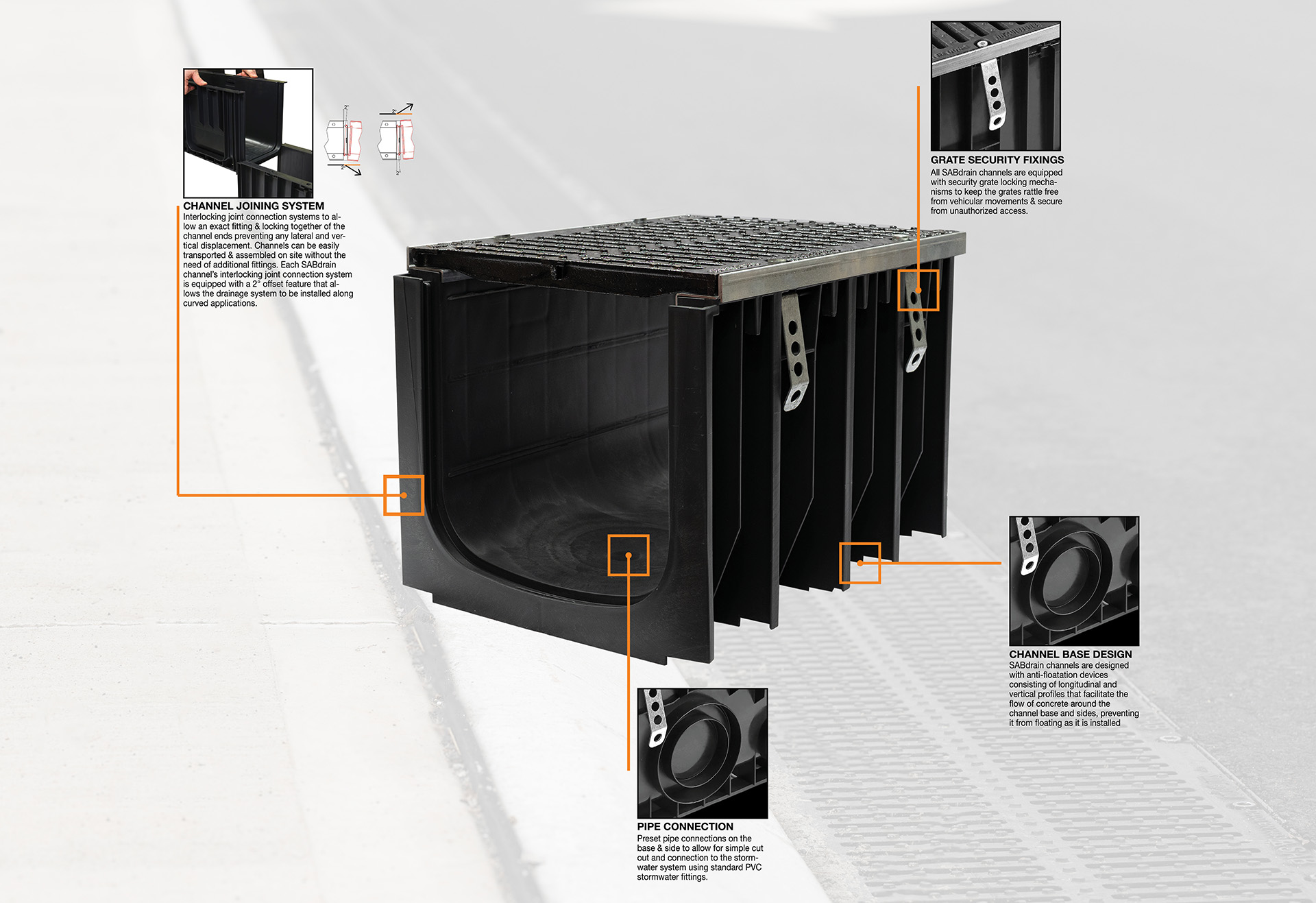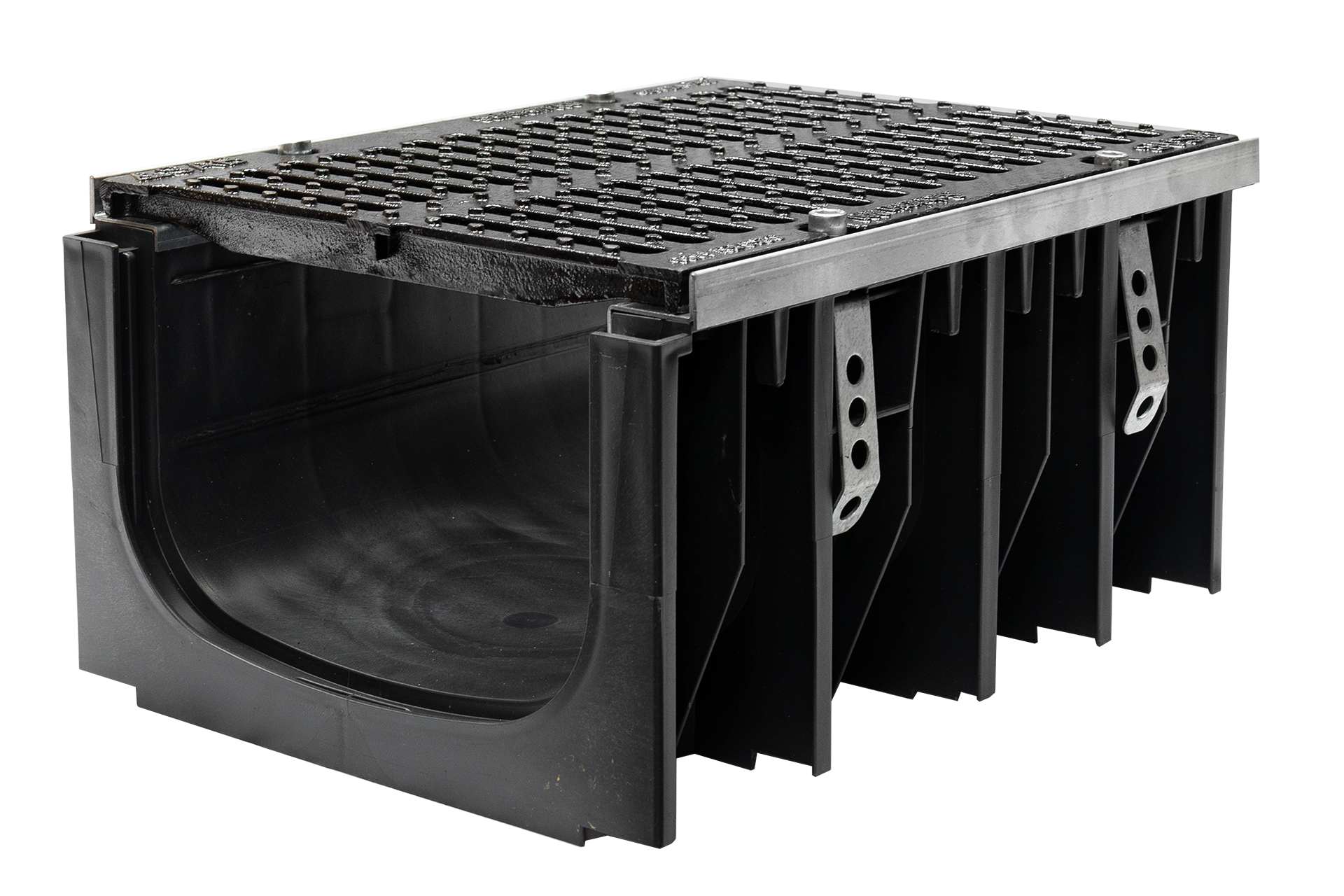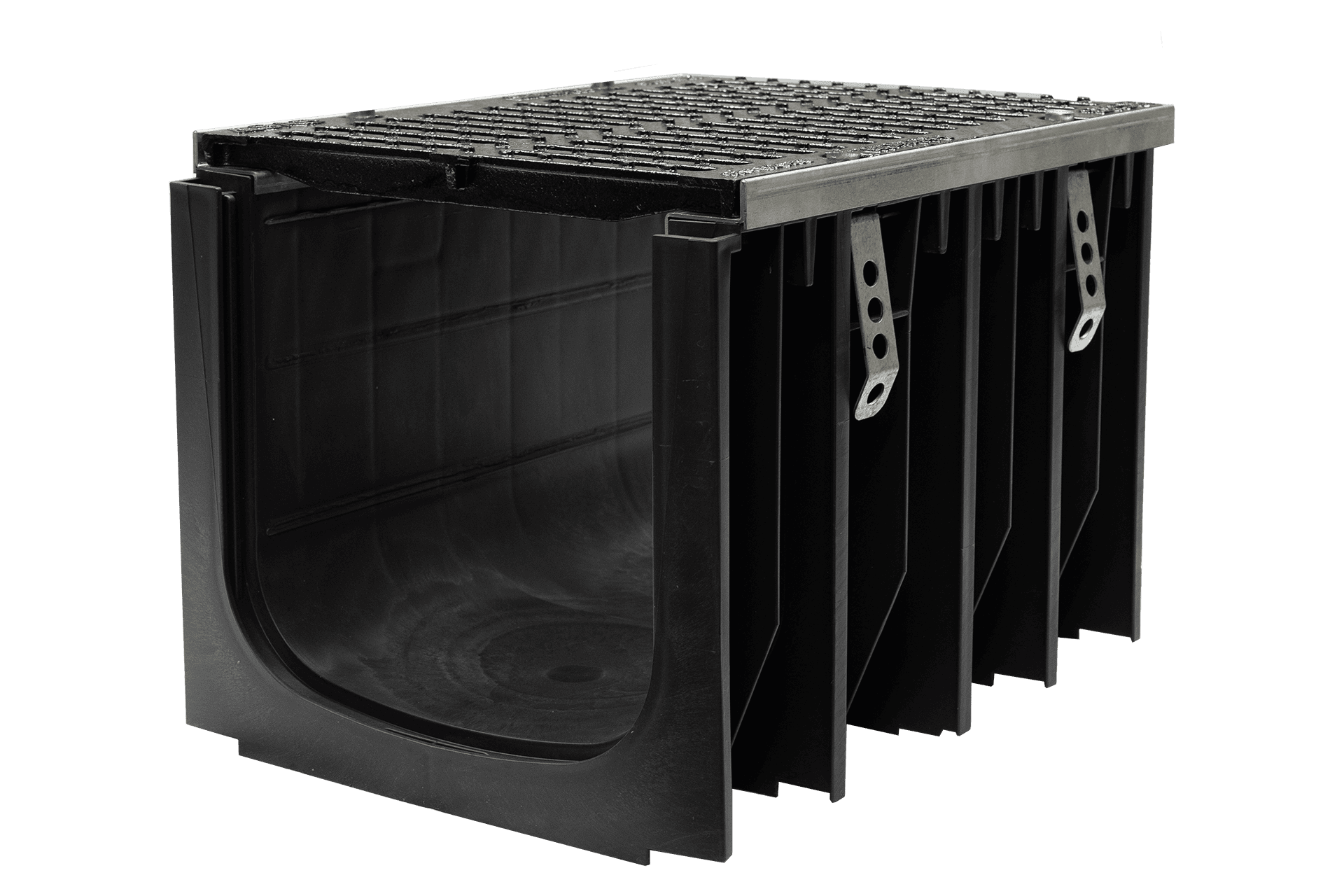Polypropylene channel with Class D rated cast iron grates. Each grate is equipped with 8 point security fixing system to keep it rattle free from vehicular movements and secure it from unauthorised access. SABdrain 704 Grande is designed for situations that need accessibility for heavy commercial vehicles (rigid or articulated trucks)
as well as being able to meet the demands of highway use.
704 Grande



Drains
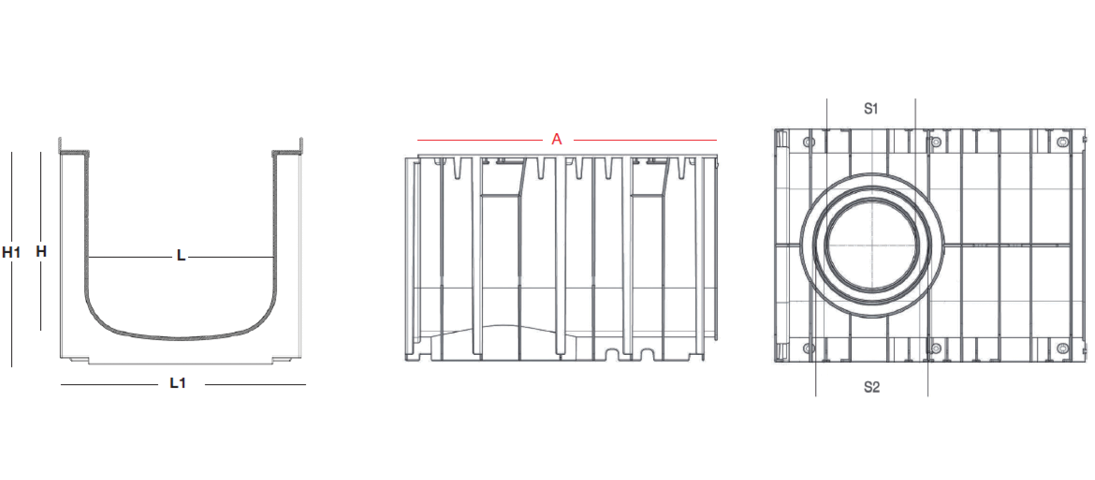
Drains
| Product Code | L | H | L1 | H1 | D1 | D2 | D3 | D4 | D5 | S1 | S2 | A | KG |
|---|---|---|---|---|---|---|---|---|---|---|---|---|---|
| DR704300200 | 300 | 200 | 390 | 260 | - | - | - | - | - | 160 | 200 | 500 | 18.8 |
| DR704300300 | 300 | 300 | 390 | 360 | - | - | - | - | - | 160 | 200 | 500 | 19.2 |
Grates

Grates
| Code | Material | Drain Cm² | A | H | H1 | L | F | Load Class | KG |
|---|---|---|---|---|---|---|---|---|---|
| DR704GRATE300 | Cast Iron | 756 | 376 | 20 | 40 | 500 | 150 X 18 | D | 13.8 |
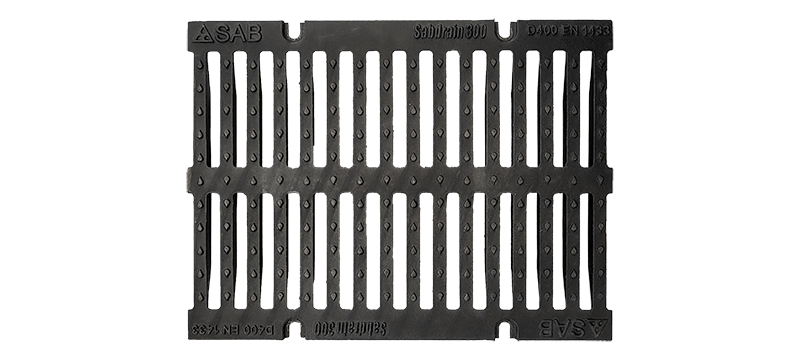
Frequently
Asked Questions
Will cast iron grates rust?
Like most metals, cast iron goes through a natural oxidation process, resulting in an outer protective coating known as rust. This process is called Patina. Patina is a naturally occurring process and shouldn’t be confused with corrosive rust.
The two conditions that cause cast iron to rust are:
- Moisture (Cast iron will begin to patina when the relative humidity exceeds about 64%.)
- Oxygen
Factors that accelerate rusting:
- Carbon Dioxide
- Acids
- Impurities
Like most metals, cast iron goes through a natural oxidation process, resulting in an outer protective coating known as rust. This process is called Patina.
Patina is a naturally occurring process and shouldn’t be confused with corrosive rust. Patina is good for iron as it provides a protective layer. A metals patina is a thin layer of oxides on the metal that acts to slow down further corrosion. Therefore patina on cast iron grates does not harm the structural integrity. This rust layer shields the cast iron from further oxidation. Think of rust as a corroded armour that protects against additional corrosion. This property allows iron to remain strong & intact for several decades. Unlike steel, cast iron is durable and will not flake. The patination of cast iron grates is predictable, and the duration of each stage depends on local moisture conditions, foot traffic, foreign substances etc.
Once the oxidation process begins, cast iron will turn a bright orange and then fade to a chocolate brown, similar to the colour of manhole covers.
Rust cannot be prevented but the process may be slowed by introducing a buffer material between the iron and atmosphere. Linseed oil can be applied to the grates prior to installation. Another common practice is to spray or powder coat the grates. This coating must be reapplied whenever there is chipping to maintain rust protection.
What is polypropylene?
Polypropylene is a material with excellent mechanical, physical and chemical properties.
Some of the most significant properties of polypropylene are:
Chemical Resistance: Diluted bases and acids don’t react readily with polypropylene
Elasticity and Toughness: Polypropylene will act with elasticity over a certain range of deflection (like all materials), but it will also experience plastic deformation early on in the deformation process, so it is generally considered a “tough” material. Toughness is an engineering term which is defined as a material’s ability to deform (plastically, not elastically) without breaking..
Fatigue Resistance: Polypropylene retains its shape after a lot of torsion, bending, and/or flexing.
Insulation: polypropylene has a very high resistance to electricity.
Where are SABdrain channels & grates made?
SABdrain channels are manufactured & shipped out of Italy. Grates are a mix of overseas & local suppliers.
Where can I purchase SABdrain?
We have over 800 distributors Australia wide. Find your nearest one here.
Alternatively, contact us & we can assist you.
What is the grande series?
The SABdrain grande series simply refers to any product where the width of the channel is larger than 300mm internally
